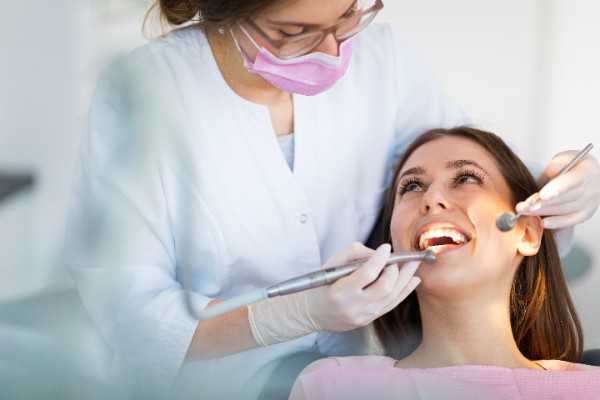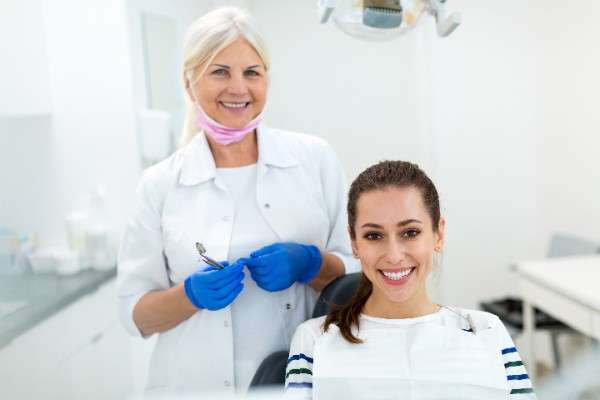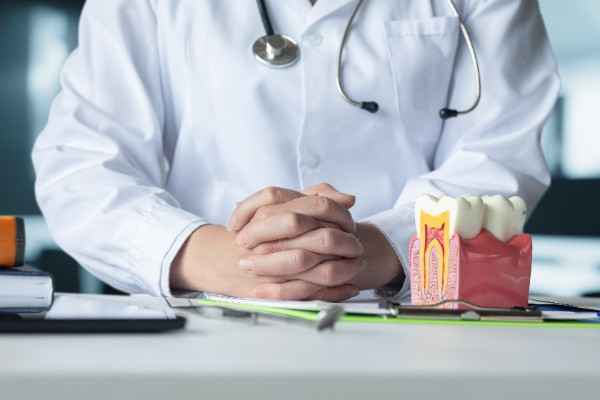A chipped tooth on a weekend hike, a child’s playground mishap, or even biting into something unexpectedly hard—oral injuries can happen anytime. While some issues seem minor, delaying treatment could lead to complications like infections, nerve damage, or even tooth loss.
In this blog, we explore what counts as a dental emergency, how to act fast, and why timely care from an emergency dentist in Lancaster matters. We’ll also show how a hygienist in Lancaster can play a long-term role in preventing and managing oral trauma.
What Qualifies as an Oral Emergency?
Not every toothache is an emergency—but knowing when something is serious could make all the difference. Common oral injuries that need immediate attention include:

- Knocked-out teeth
- Cracked, broken, or chipped teeth
- Severe toothache or swelling
- Injuries to gums, cheeks, lips, or tongue
- Bleeding that won’t stop
- Lost or damaged fillings, crowns, or braces
If you experience any of these, don’t wait. Seeking help from an emergency dentist in Lancaster within the first hour can often save the tooth.
First Aid for Common Oral Injuries
Until you get to a dental clinic, here’s how to manage the situation at home or on the go:
| Type of Injury | What to Do Immediately |
| Knocked-Out Tooth | Rinse gently, hold by the crown (not root), and reinsert or store in milk. |
| Cracked Tooth | Rinse with warm water, apply cold compress to reduce swelling. |
| Soft Tissue Injury | Clean the wound, apply pressure to stop bleeding, use cold pack. |
| Toothache or Swelling | Rinse mouth with warm salt water, use cold compress, avoid heat. |
| Lost Filling or Crown | Use temporary dental cement or sugar-free gum until you reach the dentist. |
Why Immediate Dental Care Matters
Time is everything when it comes to oral trauma. Here’s why fast action is essential:
- Preserve Natural Teeth: A knocked-out tooth can be saved if reimplanted within 30–60 minutes.
- Prevent Infection: Open wounds in the mouth are vulnerable to bacteria.
- Minimise Pain: Prompt treatment can reduce swelling, bleeding, and long-term damage.
- Restore Function: Fixing damaged teeth early helps with chewing, speaking, and smiling comfortably.
In Lancaster, getting seen quickly by an emergency dentist could spare you from future dental surgeries or complications.
When to Call an Emergency Dentist in Lancaster
If you’re experiencing pain that doesn’t go away, visible damage to teeth or gums, or unusual swelling, don’t ignore it. Contact a reliable emergency dentist in Lancaster immediately if:
- You’ve had an accident involving the mouth or jaw
- You notice pus, foul odour, or taste (signs of infection)
- Pain worsens despite home remedies
- You’ve broken orthodontic appliances
Many emergency dental clinics in Lancaster offer same-day appointments, especially for trauma-related cases.
How a Hygienist in Lancaster Supports Recovery
Emergency dental care may resolve the immediate problem, but recovery doesn’t stop there. A hygienist in Lancaster plays a vital role in ensuring your mouth heals properly and stays healthy long-term. Through regular cleanings, they help prevent infection by removing bacteria that could hinder healing. They also monitor gum and soft tissue health, watching for signs of complications or delayed recovery. With tailored aftercare advice, they guide you on the best ways to protect the injured area at home. For patients at risk of recurring trauma—such as athletes—hygienists can recommend preventive solutions like custom mouthguards. Their ongoing support ensures that minor issues don’t become major setbacks.
Do’s and Don’ts After an Oral Injury
Here’s a quick guide on what to do (and avoid) after an oral accident:
Do:
- Rinse gently with warm salt water
- Use an ice pack for swelling
- Eat soft foods while healing
- Take pain relief as advised by a dentist
- Keep your emergency dental appointment
Don’t:
- Eat hard or sticky foods
- Use aspirin on your gums
- Ignore prolonged bleeding or pain
- Delay seeing an emergency dentist in Lancaster
- Smoke or consume alcohol while your mouth heals
Prevention Tips: Avoiding Future Oral Injuries
While not all accidents are preventable, you can take steps to reduce the risk:
- Wear a mouthguard for sports or high-risk activities
- Avoid chewing hard items like ice, pens, or popcorn kernels
- Don’t use teeth as tools (e.g., opening bottles)
- Keep up with dental check-ups to spot vulnerabilities early
- Visit a hygienist in Lancaster regularly to maintain healthy gums and enamel
When Paediatric Dental Emergencies Strike
Kids and accidents often go hand in hand—and dental injuries are no exception. If a baby tooth is knocked out, resist the urge to reinsert it, as this can damage the developing permanent tooth underneath. However, if a permanent tooth is dislodged, it’s critical to keep it moist—in milk or saliva—and get to a dentist immediately. Stay calm, reassure your child, and use a cold compress to ease swelling or discomfort. Keeping the contact details of a Lancaster-based emergency dentist close by means you can act fast. With quick thinking and a cool head, you can turn a scary situation into a manageable one.

How to Prepare for a Dental Emergency at Home
Dental emergencies often happen without warning, but a little preparation can go a long way in protecting your smile. Having a dedicated dental first aid kit at home ensures you’re ready to act quickly and calmly. Stock it with essentials like gauze and cotton rolls to control bleeding, dental wax for covering sharp edges, and temporary filling material for lost fillings. A small lidded container is ideal for safely storing a knocked-out tooth, and pain relief tablets (as recommended by your dentist) can help manage discomfort. Most importantly, keep the contact number of your trusted emergency dentist in Lancaster within easy reach. Acting fast can make all the difference—sometimes even saving your tooth.
Myths About Dental Emergencies—Debunked
Misinformation can delay proper treatment. Here are common myths—and the truth:
- Myth: A lost tooth can’t be saved.
Truth: If reimplanted quickly, it often can. - Myth: Dental pain will go away on its own.
Truth: It may signal infection or damage needing urgent care. - Myth: You don’t need a hygienist after an injury.
Truth: A hygienist in Lancaster helps prevent post-injury issues like gum disease.
Don’t let myths put your dental health at risk—get the facts and act fast.
Choosing the Right Emergency Dentist in Lancaster
Not all dental clinics are equipped for urgent care—here’s what to look for when selecting the right provider:
- Same-day appointments or walk-in options
- Experienced staff trained in trauma management
- Clear communication and aftercare support
- Positive local reviews and emergency availability
- Close coordination with a trusted hygienist in Lancaster for follow-up care
Finding the right professional ensures faster relief and peace of mind during stressful moments.
Conclusion: Protecting Your Smile with Swift Action
Oral injuries are never convenient, but quick action and the right care can save your smile. From knocked-out teeth to painful swelling, the sooner you see a professional, the better your outcome. Whether it’s accessing an emergency dentist in Lancaster for urgent care or following up with a hygienist in Lancaster to maintain oral health, help is always closer than you think. At EDA Group, we understand how stressful dental trauma can be. That’s why we’re committed to providing compassionate, timely support to get you smiling again—safely and confidently.



